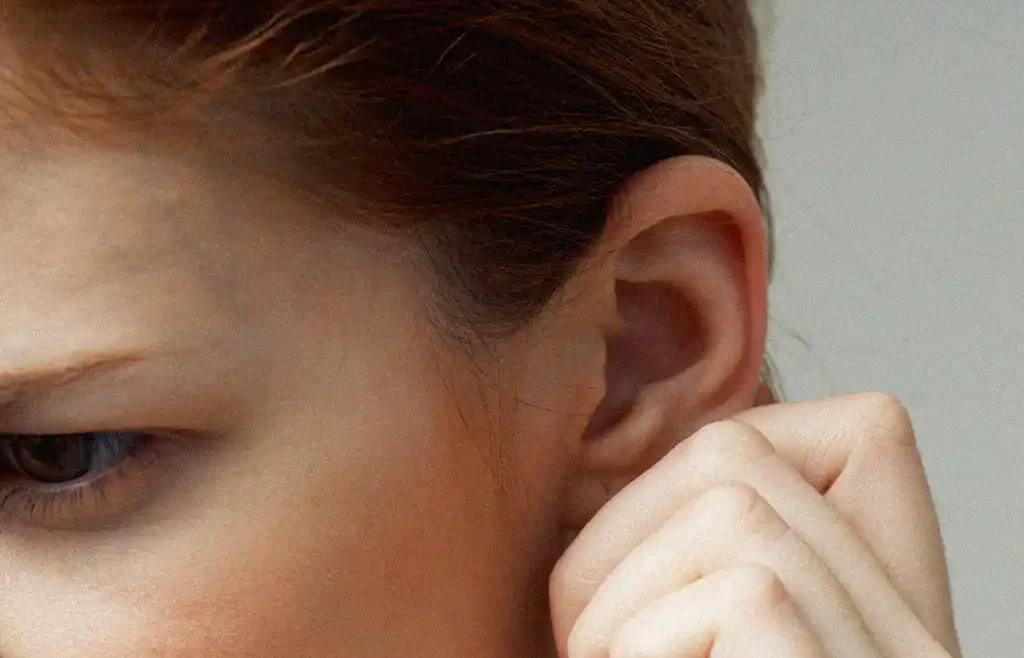Itchy Ears Perimenopause: Causes & Relief
Perimenopause is the transition toward menopause the end of the reproductive years. While many expect symptoms like hot flashes and night sweats, some women also notice itchy ears. This lesser-known symptom can feel like a persistent itch deep in the ear canal. Hormonal changes can play a role, and understanding why helps you find relief.
During perimenopause, estrogen levels drop. Estrogen supports hydration and the barrier function of skin and mucous membranes. When levels fall, tissues can dry out across the body including the delicate skin in the ears. That dryness, plus shifts in earwax production, can make ears feel itchy, tight, or even slightly burning.
Some also report tinnitus (ringing), warmth, or “hot ears,” especially during hot flashes and night sweats. Others experience more frequent irritation if they already have skin conditions such as eczema or psoriasis. These issues are part of the common signs of perimenopause. They may not be as well-known as the classic menopause symptoms.

Low Estrogen and Ear Problems
Estrogen helps maintain skin thickness, collagen, and natural oils that keep tissues supple. When estrogen levels drop, the ear canal may make less protective earwax, and the lining can become dry and reactive. That dryness invites itching and occasional inflammation.
Circulation and nerve signaling can also shift with hormonal changes. For some, that’s why tinnitus appears or worsens during perimenopause. If you’re prone to allergies or skin flare-ups, you might feel ear symptoms more strongly during hormonal ups and downs.
Menopause Itchy Ears Treatment
Relief starts with gentle, moisture-restoring habits and avoiding irritation:
- Skip scratching and Q-tips. They can damage the canal and worsen itching.
- Lightly moisturize. With clean hands, apply a tiny amount of coconut oil or olive oil to the outer opening (not deep inside). These natural oils replenish the barrier without overloading the canal.
- Use over-the-counter ear drops. Hydrating counter ear drops (often with glycerin or mineral oil) can soothe dryness.
- Humidify and hydrate. A bedside humidifier plus drinking plenty of water helps the skin and mucous membranes maintain moisture.
- Cool and calm. Heat spikes can aggravate itch. Keep cool layers handy and manage stress with breathing, gentle movement, or short mindfulness breaks to reduce stress.
- Mind your skin care. Use gentle, fragrance-free products around the ears. If you have eczema or other skin conditions, follow your clinician’s plan to keep flares in check.
If home care doesn’t help—or if you notice pain, discharge, or hearing loss—see a clinician. They can check for infection, ear eczema, or excess wax and may prescribe medicated drops. For broader menopausal dryness, your provider might discuss hormone therapy within a personalized plan.

Quick Self-Care Checklist
- Moisturize the outer ear opening with a dab of natural oils.
- Try hydrating counter ear drops as directed.
- Use a humidifier at night.
- Keep cool during hot flashes and night sweats.
- Stay hydrated by drinking plenty of water.
- Manage stress daily to reduce stress-induced itch cycles.
- Avoid inserting objects into the ear canal.
Why This Happens Now
Perimenopause is a time when estrogen levels drop unevenly. Those fluctuations can dry out skin and mucous membranes—not just in the vagina and eyes, but also in the ear canal. Add underlying sensitivities or skin conditions, and the result can be a persistent itch that’s tough to ignore. Knowing hormones play a role can be reassuring and can guide practical steps for relief.
When to Seek Medical Care
Call your clinician if itching is severe, constant, or accompanied by pain, discharge, fever, or hearing changes. These signs can point to infection or another condition that needs treatment.
FAQ
Are itchy ears a symptom of perimenopause?
Yes. As estrogen levels drop, dryness in the ear canal can cause itchy ears—one of several lesser-known symptoms of perimenopause.
How can I soothe menopausal ear itch at home?
Moisturize gently with coconut oil or olive oil at the opening, use hydrating counter ear drops, run a humidifier, and focus on hydration and manage stress strategies.
Can low estrogen cause other ear issues?
It can play a role in dryness, irritation, and sometimes tinnitus. Underlying skin conditions may also flare when hormones shift.
What should I avoid?
Avoid scratching and Q-tips. They irritate tissue and can push wax deeper.
Closing Thoughts on Itchy Ears Perimenopause
Itchy ears during perimenopause are common and usually manageable. Support moisture with natural oils, counter ear drops, and consistent hydration, keep cool during hot flashes and night sweats, and reduce stress. If symptoms persist or worsen, check in with your clinician for targeted care.
References:
- Brighten, J. (2024, February 23). 10 Odd Symptoms of Menopause. Dr. Jolene Brighten.
- Goddard, G. (2024, July 18). Are Itchy Ears a Symptom of Perimenopause? ParentData (Emily Oster Substack).
- Hunter, C. (n.d.). Itchy Ears in Menopause & Other Ear-Related Problems. Charlotte Hunter Nutrition.
- Hullihan, E. (2025, May 9). Dry Eyes, Itchy Ears, and Other Weird Symptoms of Perimenopause. The Change Is Personal.
- MBODY Expert Team. (2023, Nov 9). Itchy Ears in Perimenopause? Here’s How to Find Relief. MBODY Health.
- Watson, S. (2023, March 3). 6 Reasons Why You Have Itchy Ears. AARP.




